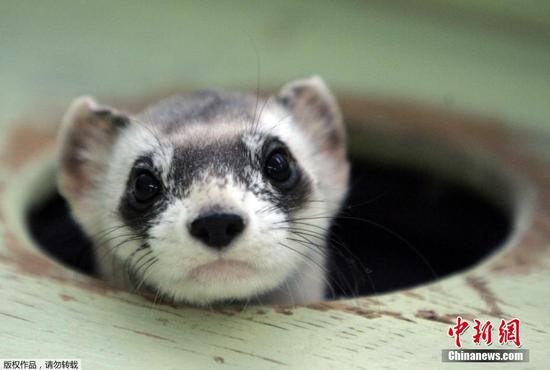(ECNS) -- A research team from China's Northwest University has developed an animal facial recognition system that can recognize monkey features.
At present, the system is at the stage of application and popularization. It is expected to realize intelligent management of wild animals through granting them their own electronic IDs.
The golden snub-nosed monkey, an endangered primate endemic to China, inhabits Qinling Mountains.
Though tracking, studying and protecting these monkeys has been significant, quick and accurate identification of them has proven a thorny issue for researchers.
The team creatively developed the individual recognition system of golden snub-nosed monkeys by using a neural network based on long-time research of monkey features.
"We've found faces are suitable for individual animal recognition after researching related algorithms and models. The recognition system works by first identifying the individual in the wild, tracking it and recognizing it," said Guo Songtao, Professor of the College of Life Sciences of Northwest University.
Animal facial recognition, similar to its human equivalent, can help record unique data pertaining to each golden snub-nosed monkey by extracting their facial information. When a monkey appears, the system will recognize its "identity" and display information such as height, age, etc.
"The animal facial recognition system may automatically transmit basic information of an animal in future. For example, after we take a photo of an animal with a mobile phone, the system would automatically display its name, gender, hobbies and so on," said Xu Pengfei, Associate Professor of the College of Information Science and Technology of Northwest University.
Currently, the research team has applied the initial edition of the system to the identification and recording of thousands of golden snub-nosed monkeys of different species scattered across Qinling Mountains.
Researchers have also started a database of golden snub-nosed monkeys. The system boasts an accuracy rate of 94.1% after trials involving 41 typical primates including golden snub-nosed monkeys and four carnivore populations.
RIGHT BG


















































